almost 2 weeks ago we found mold in our basement.
We built the house/closed on it 2 months ago. They poured the foundation in Jan. We had a lot of snow this winter followed by a pretty consistant wet spring/summer. Before we closed on the house we were having issues with water going into the wall/flooring around the perimiter of the house in the basement (not finished) and they put an industrial dehumiifier in and poked another larger hole in the sump pump and that seemed to take care of it all. No more walls/floor getting dark. When we did our preclose walk through we were suggested to put a dehumidifier in the basement. We didn't see any more 'wet' so we figured it was a 200$ purchase that could wait. A month ago when it rained especially hard we had our window wells fill with water and pour down the sides of the basement walls and onto the floor. We moved everything away from the walls and allowed it all to dry out. The builder sent someone out to seal the windows and had us put well covers over the wells. A week ago we we put in big metal shelving unit to get stuff off the floor and found that under the boxes was wet and mold had started to grow. This 'wet' was no where near where the water had come in from the window wells. I went out that night and bought a 50 pint dehumidifier
Our basement has a finished bathroom but thats the only part thats finished. The rest is a large open room aprox 30x40' (with jut outs for the dining room/morning room) We have a leather sectional, tv, toys as well as our storage to the side where the boxes were. Well upon further inspection we noticed mold on the baseboards in the bathroom, behind and below the leather sectional, wooden shelving units that held toys, paint etc.
The next day was the friday before the 4th of july and the builder sent out an 'enviromental docter' to test the mold, to see where it was and the mold levels. Told us that the mold levels were within normal range, the humidity levels was 55% but it should come down with the dehudifier running (it had been 71%) The baseboard moisture leve was 19 and above range. There was no mold on the structure of the house just at floor level. Told us to get rid of the boxes, get everything up off the floor, and wipe everything down with a bleach water solution.
Now it's been 10 days of running the dehumidifier on continuous. The digital reading on the upstairs thermostat says the humidity level is 58% the basement humidity level reading (I bought a little humidity reader at walmart) is varying from 51-58%. We were emptying the dehumidifier 2 sometimes 3 times a day, but my husband has since hooked up a hose and draining it directly into the sump pump.
I'm at a loss at this point. Our builder continues to tell me this is all normal and that if we have incured anything that has to be thrown away that they will not cover anything because we didn't buy a dehumidifier when they suggested it. Our neighbors all say their basements are dry, no mold and they were never suggested to buy a dehumidifier. I'm concerned about the amount of moisture that still remains in our home, that the mold keeps coming back into the bathroom basement baseboards, the amount of moisture that is being pulled out of the house still 10 days later. The hose isn't running has heavy as it was, its now a constant trickle but the humidity level remains the same.
If this is not normal, whats causing it. Where is the moisture coming from. Pulling this much moisture now is it going to cause for the walls to crack when winter comes? Do we need another dehumidifier? We have a 20 year dry basement warrenty that we bought/extended from the 10 year that came with the house. The house is also under warenty for the first year with a structure warenty that lasts longer but can't remember what it is. If this is not normal how do I get a proffesional to come in and tell me its not to build a case for the builder.
Thank you for any help or light you can shed on our situation. My husband just retired from 20 years in the Air Force last year, and this is our first home. We've waited a long time for our home, this is all the last thing we expected.
BTW our builder is Inverness homes of Cincinnati (we are in Dayton)
Angela
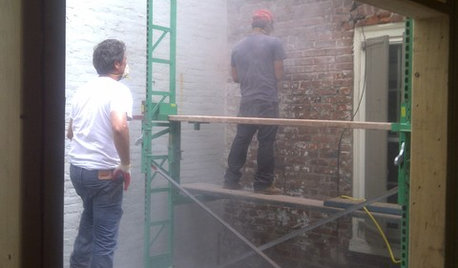


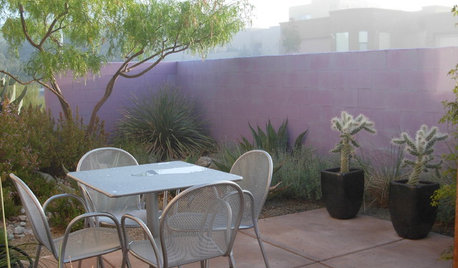
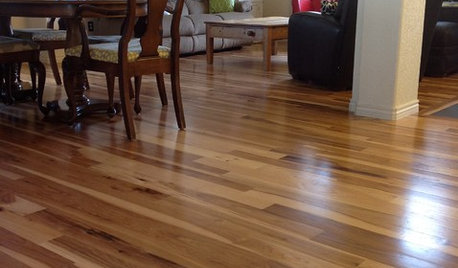
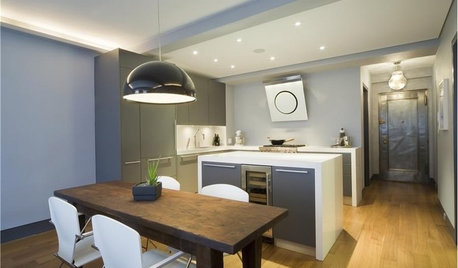


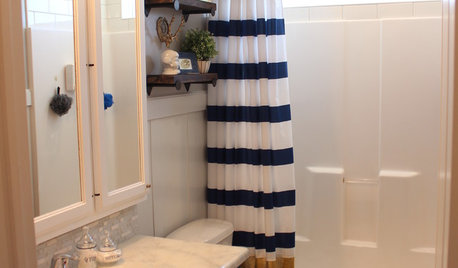









worthy
worthy
Related Professionals
Eatontown General Contractors · Everett General Contractors · Grand Junction General Contractors · Jackson General Contractors · Jamestown General Contractors · Meadville General Contractors · Mount Vernon General Contractors · East Patchogue Interior Designers & Decorators · Pembroke Architects & Building Designers · Englewood Flooring Contractors · Green Bay Flooring Contractors · Jenison Flooring Contractors · Land O' Lakes Flooring Contractors · Poughkeepsie Flooring Contractors · San Tan Valley Flooring Contractorsmacv
tkme4ardOriginal Author
worthy